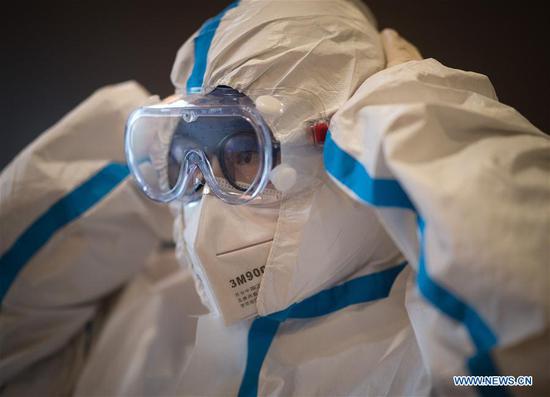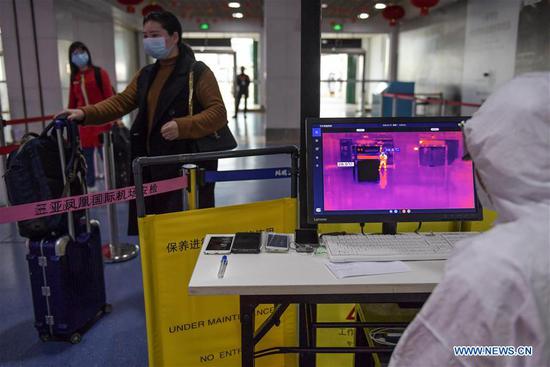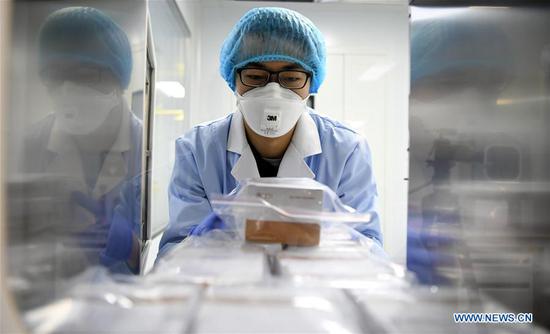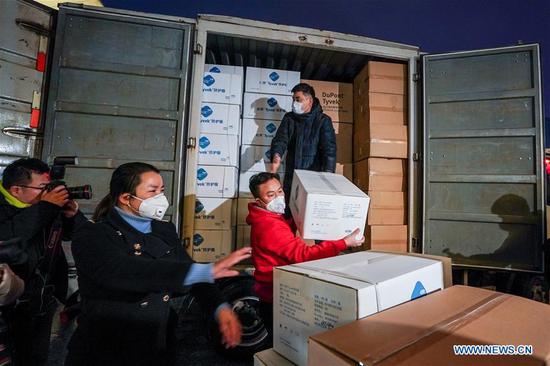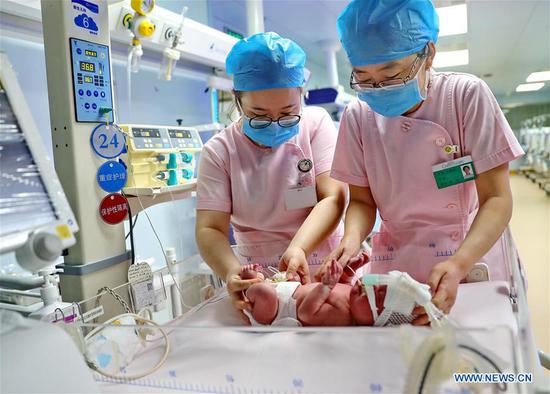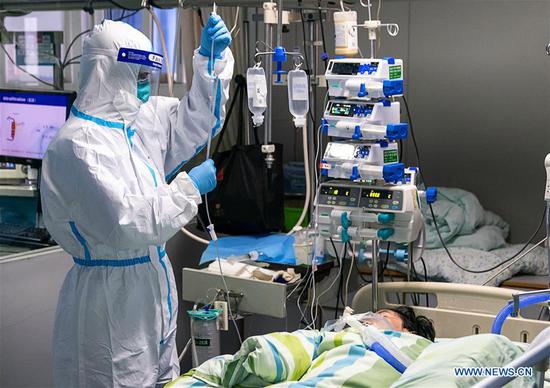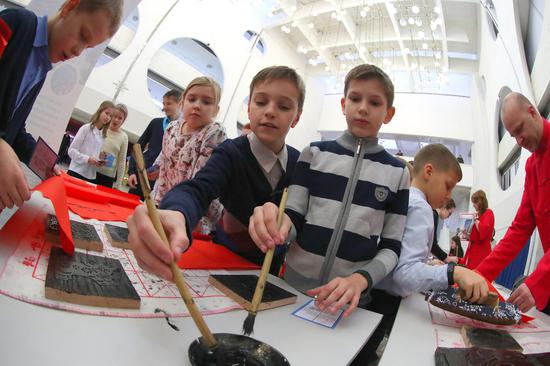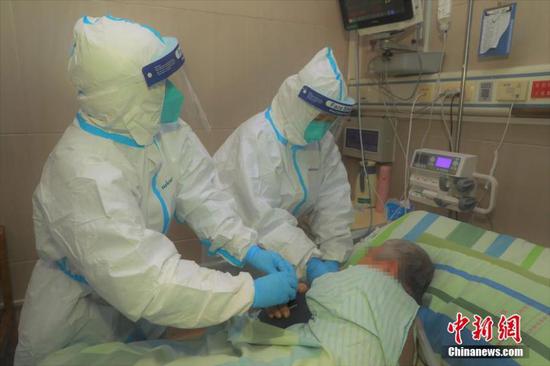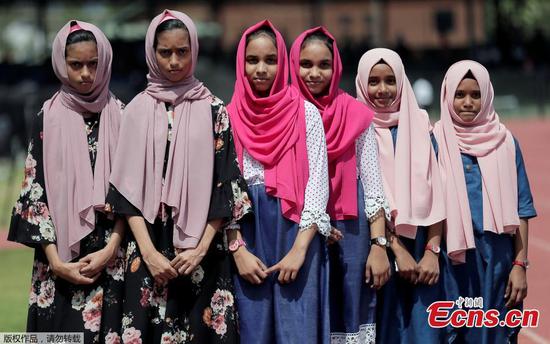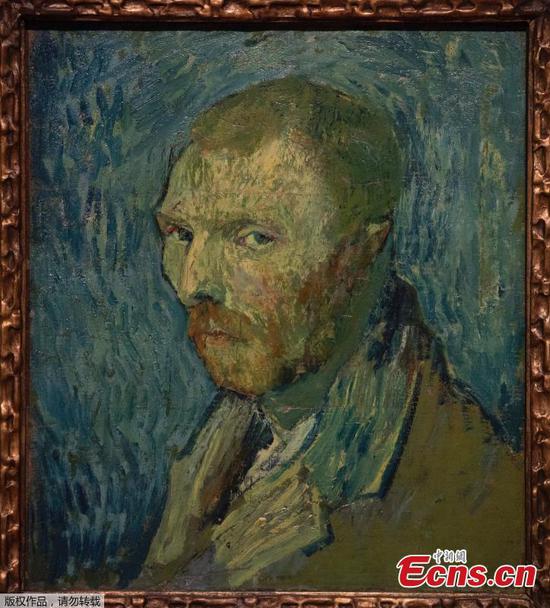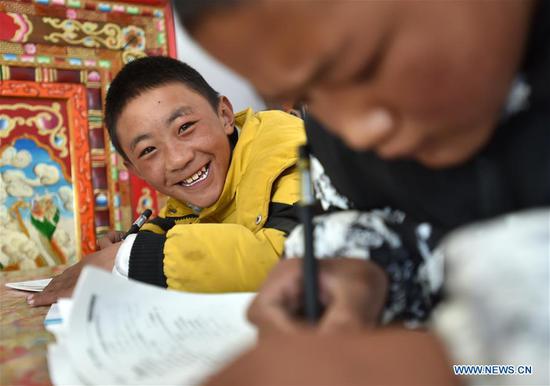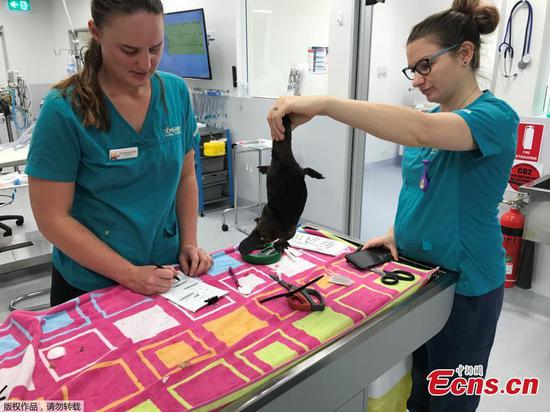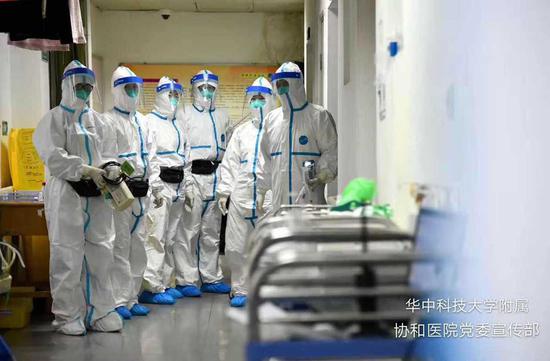The World Health Organization (WHO) published on Tuesday interim clinical care guidance for hospitalized patients and for mildly ill patients at home who are suspected of the novel coronavirus (2019-nCoV) infection.
Generally, clinical care of suspected patients with 2019-nCoV should focus on early recognition, immediate isolation or separation, implementation of appropriate infection prevention and control (IPC) measures, and provision of optimized supportive care, the WHO said.
For the hospitalized suspected patients, the guidance recommends a series of steps and dos and don'ts for clinicians to take, starting with triage to recognize and sort patients with severe acute respiratory infection (SARI) at first point of contact with health care system.
Following appropriate IPC measures and early supportive therapy, the guidance also advises to collect specimens for laboratory diagnosis, manage acute respiratory distress syndrome, and prevent complications, while also recommending specific anti-novel-coronavirus treatments and special considerations for pregnant patients.
For home-care patients with mild symptoms, the WHO recommends to limit the number of caretakers of the patient, minimize shared space, wear a medical mask fitted tightly to the face, and perform hand hygiene following all contact, as well as many other detailed dos and don'ts.
Due to many still unknowns about the virus, the WHO is launching a Global 2019-nCoV Clinical Data Platform to allow members to contribute anonymized clinical data in order to inform the public health clinical response.
As there is currently no known effective antiviral therapy for 2019-nCoV, the WHO said its R&D blueprint is also evaluating potential therapeutics and developing master clinical protocols that are necessary to accelerate antiviral therapy globally.
For that end, the WHO is convening a bi-weekly call with clinical experts around the globe to better understand in real-time the clinical presentation and treatment interventions. It has also requested the Emergency Medical Teams network to support triage, referral systems, clinical care and IPC.









